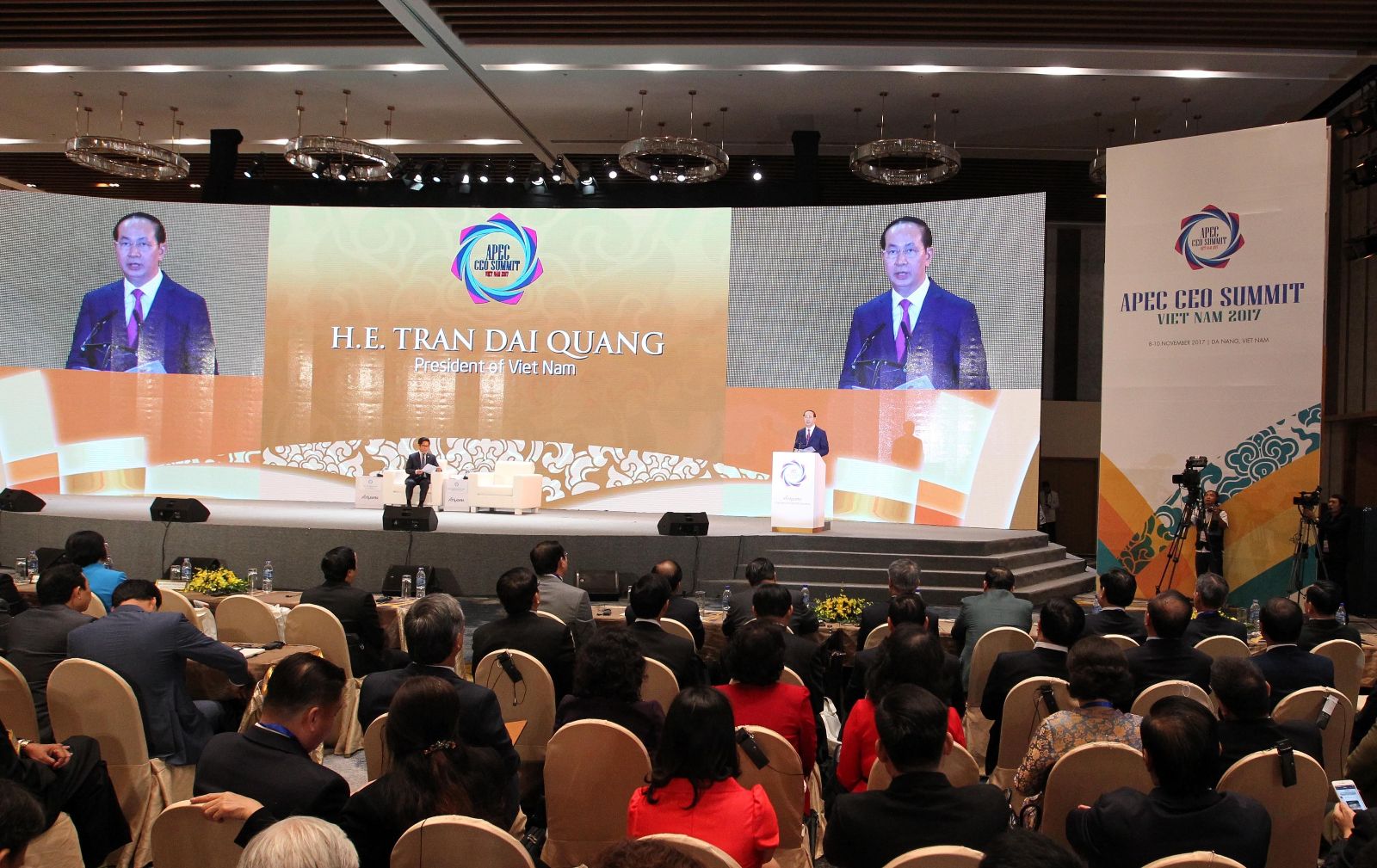APEC: Creating new motivation for future development
As such, APEC needs a new motivation to facilitate growth among member economies in the new context. APEC also need to have a new vision post 2020, when the organization enters its 4th decade. The APEC business community looks forward to have a clearer view on this motivation, so that they can develop appropriate business strategy for the pre 2020 period and the upcoming decade.
From another perspective, APEC means business, as all of its activities are related to enterprises. With this being said, initiatives on inclusive development with regard to economy, society and finance of the host Vietnam, despite receiving broad agreement from APEC member economies, but still need the support from business enterprises for materialization. Moreover, the development of business community is seen as major driving force for the development of APEC member economies and the world in the coming time.
In the speech of the President of Vietnam Mr. Tran Dai Quang at the APEC CEO Summit 2017, the leader of Vietnam stressed, we need to turn the story of economic miracle into the miracle of inclusive development of the region, and becoming pioneer in implementing sustainable development objectives of the United Nation. Bearing this in mind, the APEC will put more responsibilities on the business community.
This story will not be completed without having the business and investment strategy of business community closely related with their social responsibilities, raising enterprises’ awareness in ensuring the security of food, water and energy, inspiring the entrepreneurship and start-up, empowering women led- enterprises, supporting micro, small and medium enterprises to integrate in global market.
At the APEC CEO Summit 2017, the APEC business community is committed to accompany APEC leaders in effort of writing miracle stories on inclusive development. However, how these stories will be written, and what is the new motivation for APEC development, the answer will be from APEC leaders.
Inclusive development is a pro-poor approach that equally values and incorporates the contributions of all stakeholders – including marginalized groups – in addressing development issues. It promotes transparency and accountability, and enhances development cooperation outcomes through collaboration between civil society, governments and private sector actors.
Development fails when governments neglect the needs of the very people it is designed to help. Yet too often, countries undertake development policies and programs in response to donor demands or private sector interests at the cost of citizen involvement, resulting in ineffective and sometimes destructive developmental programs. Foreign aid works best as a tool in the hands of the right local leaders – those trying to solve their own problems in their own nations and neighborhoods. On the contrary, development initiatives are more effective for poverty reduction when all stakeholders, especially citizens and marginalized communities, are actively involved in the planning, execution and monitoring of development programs.


 English
English




